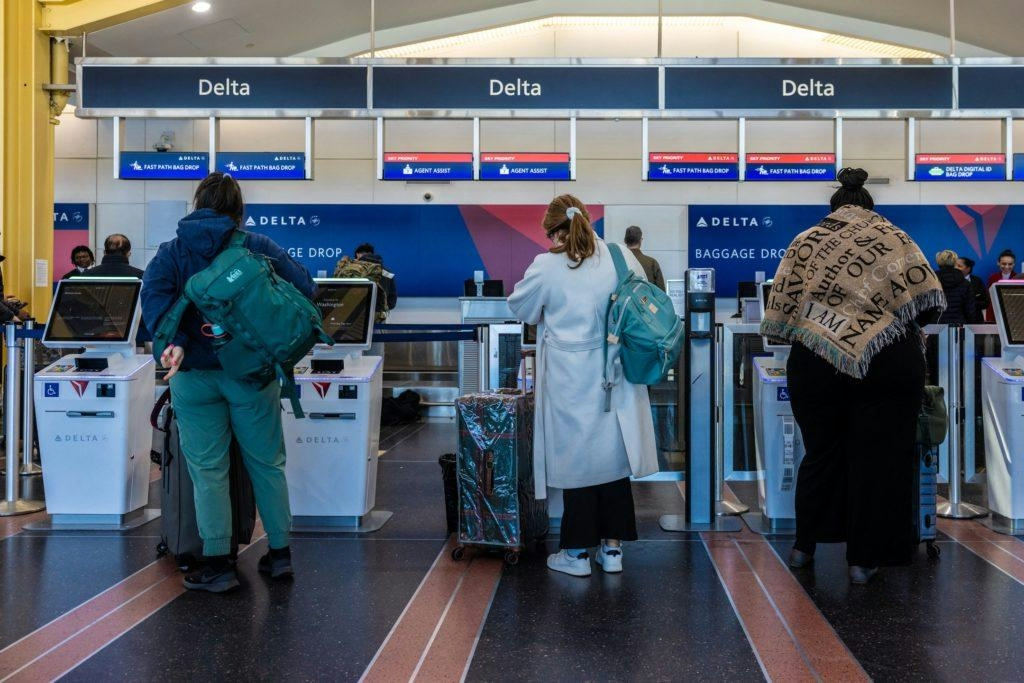AeroGenie — Your Intelligent Copilot.
Trending
Categories
Strategies to Counter AI-Driven Dynamic Pricing

Strategies to Counter AI-Driven Dynamic Pricing
Delta Air Lines’ recent adoption of artificial intelligence to set airfare prices has sparked significant concern among travelers regarding the future landscape of ticket pricing. While the airline maintains that it is not personalizing prices based on individual customer data, it is employing AI to adjust fares with unprecedented speed in response to market fluctuations—far quicker than any human team could achieve.
Currently, this AI-driven pricing model is being tested on approximately 3% of Delta’s flights, with plans to expand to 20% by the end of the year. At present, all customers see uniform prices for a given flight, but the technology enables these prices to change more dynamically. This development has intensified broader apprehensions about the possibility of airlines or other companies using AI to tailor prices to each customer’s willingness to pay.
Navigating Airfare in an AI-Driven Market
Despite the technological advancements in pricing strategies, traditional methods for securing the best airfare remain effective. Travelers who maintain flexibility in their travel dates—opting for less popular days such as Tuesdays, Wednesdays, or Saturdays—often find lower fares. Expanding the search to include nearby alternative airports can also reveal more competitive pricing. Utilizing comparison platforms like Google Flights allows consumers to efficiently evaluate prices across different cities, dates, and carriers. Additionally, booking two one-way tickets instead of a round-trip fare can sometimes result in savings. Budget airlines and basic economy options on major carriers may offer reduced prices, though travelers should remain cautious of additional fees, particularly for baggage.
Regulatory and Market Implications
Delta’s move has drawn attention to the broader challenges posed by AI-driven dynamic pricing beyond consumer concerns. Regulatory authorities are increasingly scrutinizing these practices due to the risk that AI algorithms might inadvertently facilitate collusion or unfair pricing, raising significant antitrust issues. There is an ongoing debate about whether existing legal frameworks are adequate to address the complexities introduced by AI-enabled price coordination among competitors.
Consumer backlash against perceived unfair or opaque pricing strategies has already influenced market behavior, prompting some companies to reconsider their approaches. In response, competitors may adopt similar AI technologies to maintain market position or explore alternative pricing models that prioritize transparency and fairness. Meanwhile, airlines and other businesses are seeking to leverage customer data to personalize offers while balancing profitability with regulatory compliance. This tension between innovation, fairness, and oversight is poised to shape the future of airfare pricing.
The Road Ahead
At present, AI has made airfare pricing more dynamic, but individual travelers are not yet subject to personalized pricing. As the technology matures and its adoption widens, vigilance from both consumers and regulators will be essential. There may be a need for updated legislation and industry standards to ensure that AI-driven pricing remains equitable and competitive, rather than becoming a mechanism for concealed price manipulation. In the interim, travelers can continue to rely on flexibility, thorough research, and comparison tools to secure the most advantageous fares.
Comments
- H
Hemang W
Great insights on AI-driven dynamic pricing! Using data-driven insights from WebDataGuru can help businesses stay competitive and make smarter pricing decisions.
- P
PriceIntelGuru
AI-driven dynamic pricing is definitely reshaping the travel industry. While it offers airlines like Delta more agility, it also highlights the importance of transparency and fairness. Tools like PriceIntelGuru can help travel businesses monitor competitor pricing in real time and make informed, strategic decisions—balancing innovation with consumer trust.

Emirates Unveils Cabin Design for New Boeing 777X

Eighteen Years On, the Airbus A380 Remains Central to a $34 Billion Airline

How a boom in luxury airline seats is slowing down jet deliveries

Navitaire Outage Attributed to Planned Maintenance

DigiYatra Debuts Outside Aviation at India AI Impact Summit

Vietnam Orders Strengthen Boeing’s Commercial Outlook

Airbus Signals Uncertainty Over Future A400M Orders

JobsOhio Awards $2 Million Grant to Hartzell Propeller for Innovation Center

Collins Aerospace Tests Sidekick Autonomy Software on YFQ-42A for U.S. Air Force CCA Program

How the Airbus A350-1000 Compares to the Boeing 777
